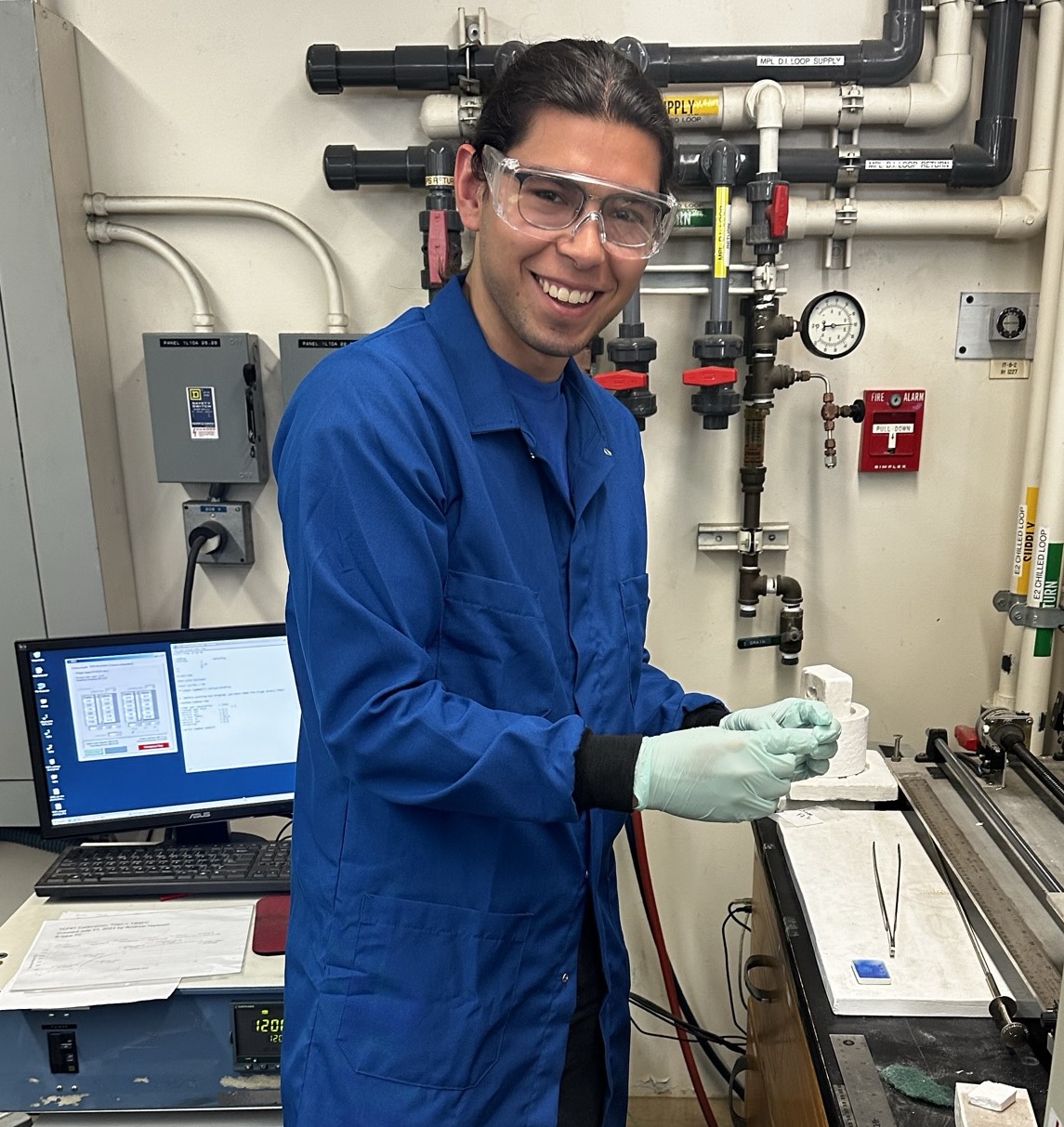
Due to their superior thermal capabilities, refractory alloys are positioned as suitable candidates to replace structural Ni-based superalloys to enhance the efficiency of gas turbine engines. Improving efficiency can be achieved by increasing the temperature of the engine’s combustion chamber; however, current substrate alloys cannot endure the increase in temperature. Refractory alloys can endure the projected temperature increase but suffer from poor oxidation behavior; a bond coat can provide oxidation protection by forming an oxide layer (often Al2O3) at the gas- metal interface. Refractory alloys are chemically incompatible with the bond coat alloys designed for Ni-based superalloys, driving the development of new bond coatings for refractory alloys. This study characterizes the performance of a refractory bond coat alloy with 24-hour cyclic oxidation experiments at 800°C, 1200°C, and 1400°C. To aid in the prediction of stress states in the alloy and oxide layer, the coefficient of thermal expansion was determined with dilatometry measurements. The cyclic oxidation tests resulted in the 800°C and 1200°C samples forming alumina and mixed oxides while remaining intact. The 1400°C sample experienced severe spallation while still forming alumina and mixed oxides. The dilatometry tests display similar CTEs revealing the severe spalling may not be impacted by differences in CTEs previously thought. The initial samples were small cubes meaning the severe spallation could have been a result of stress building up at the edges. Future experiments will be done with larger disk-like samples in hope to reduce thermal stress build up at the edges. To ensure the bond coat will bond to a refractory alloy substrate, it is important to understand how the bond coat may interdiffuse with the substrate layer. Thus, in the future, studies will be conducted using spark plasma sintering and vacuum heat treatment to determine the interdiffusion behavior with C103 as a proxy substrate.